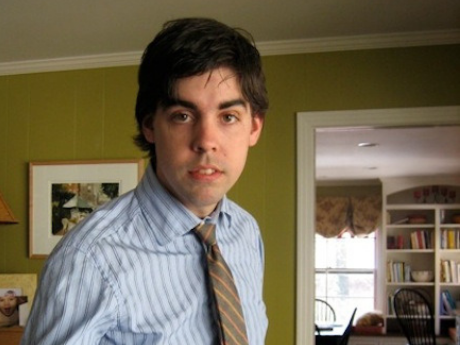New American Poets
New American Poets: Paul Killebrew

Are you interested in the relationship between poetry and politics? Do you believe that your own poetry has political implications?
I almost joined the Army once. Amazing but true. I took the intelligence test and everything. This was actually not all that long ago. After basic training, I was going to enter officer school and work in some kind of legal area. I had or was given the impression that it would be like A Few Good Men. Luckily I backed out before signing anything serious. These days, I pass the Army recruitment office every morning on the way to work, and I've gotten to be chat-level friendly with the recruiters. One guy in particular, the commanding officer I think, still asks me when I'm going to come in and sign up. "I can't today," I usually tell him. "My boss would kill me." He chuckles and throws me a little shrug.
When I was considering joining up I thought that being a poet, or anyway identifying myself as one, might be one of the many alienating experiences I'd have in the armed forces. This made me tense because I don't like the idea that poetry, rather than making space for communion, only puts us deeper into our own little worlds. It's difficult because poetry so often seems like a very insular, even provincial, concern, and its connection to politics is tenuous at best, often no more than a kind of color commentary—like a verse equivalent to Michael Moore or Rush Limbaugh—for a situation from which it's increasingly dissociated.
But I didn't stay out of the Army because of poetry. In truth, things just got very intense and frightening, and I bailed. I don't know if it was a good decision or not, but the whole experience has, for whatever reason, led me to believe that writing political poems is really important. While I'm sure any political poems I write will be no more relevant than my vote, I hope they'll be a little ballsier than I am and somewhat more willing to carry a gun.


